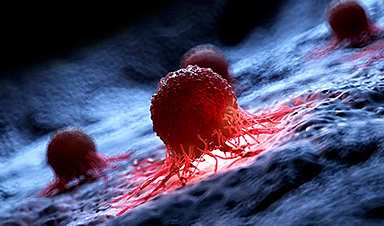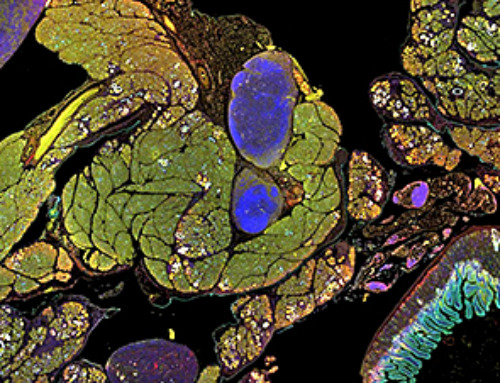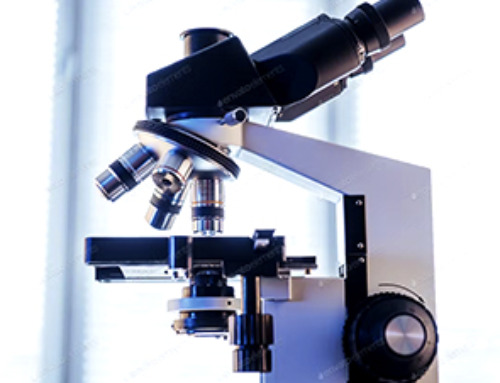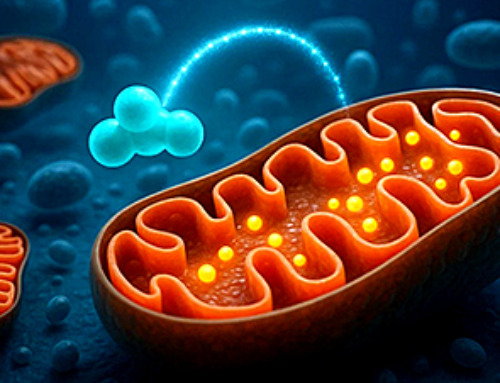Researchers discovered peptides that permanently block a key cancer protein once thought untreatable, using a new screening method to test their effectiveness inside cells.
For the first time, scientists have identified promising drug candidates that irreversibly bind to a notoriously “undruggable” cancer protein, effectively and permanently disabling it.
Transcription factors, proteins that act as master regulators of gene expression, play a critical role in cancer development. Despite years of effort, designing small-molecule drugs to block these proteins has proven largely ineffective. As a result, researchers have recently turned their attention to peptides, short chains of amino acids, as a potential solution for targeting these elusive proteins.
Now, a team from the University of Bath has developed a breakthrough method to discover peptides that can selectively and irreversibly bind to transcription factors inside cells. Using this approach, they have successfully blocked a key cancer-driving transcription factor known as cJun, marking a significant step forward in targeting previously untreatable cancer mechanisms.
The team, publishing in the journal Advanced Science, used a new drug discovery screening platform technology, called the Transcription Block Survival (TBS) assay, which tests a huge number of peptides to “switch off” transcription factors that drive cancer.
Their previous work identified reversible inhibitors of cJun, but this latest work builds on that by discovering peptides that bind selectively and irreversibly within cells, permanently blocking cJun action.
How the Inhibitor Works
The transcription factor cJun has two identical halves, which bind on either side of the DNA strand to alter gene expression.
It can become overactive in cancer, driving uncontrolled cell growth, so the researchers designed a peptide inhibitor that binds to one-half of cJun, stopping it from forming pairs and attaching to the DNA.
Once they had made a peptide that bound to the transcription factor, the researchers modified it to bind irreversibly.
Dr Andy Brennan, first author of the study and Research Fellow in the University of Bath’s Department of Life Sciences, said: “The inhibitor works a bit like a harpoon that fires across to the target and won’t let go – it grips the cJun tightly and stops it from binding to the DNA.
“We’d previously identified reversible inhibitors but this is the first time we’ve managed to block a transcription factor irreversibly with a peptide inhibitor.”
Testing and Screening with the TBS Assay
For the Transcription Block Survival assay, researchers inserted binding sites for cJun, into an essential gene in cells grown in the lab. As cJun binds to the gene, it prevents it from working and the cell dies. In contrast, if cJun is blocked by the peptide inhibitor, the gene activity is restored and the cell survives.
Jody Mason, CSO of Revolver Therapeutics and Professor of Biochemistry in the University of Bath’s Department of Life Sciences, said: “Many drug candidates that are effective in vitro turn out to be toxic or don’t penetrate cancer cells at all.
“However our platform screens for peptide activity directly in the cell, overcoming many common challenges faced by drugs based on small molecules or antibodies.
“The screen checks the activity of the inhibitor in a real cell environment which includes proteases and other proteins that can sometimes interfere with peptide activity, whilst also checking toxicity.
“We hope this technology can in the future uncover other promising drug candidates for previously ‘undruggable’ targets.”
Having proven cell permeability and activity in cancer cells, as well as target selectivity, the researchers now need to show the inhibitors work in preclinical cancer models.
Reference: “An Intracellular Peptide Library Screening Platform Identifies Irreversible Covalent Transcription Factor Inhibitors” by Andrew Brennan, Scott Lovell, Keith W Vance and Jody M Mason, 17 March 2025, Advanced Science.
DOI: 10.1002/advs.202416963
The research was partly funded by the Medical Research Council and Biotechnology and Biological Sciences Research Council.
News
Scientists May Have Found a Secret Weapon To Stop Pancreatic Cancer Before It Starts
Researchers at Cold Spring Harbor Laboratory have found that blocking the FGFR2 and EGFR genes can stop early-stage pancreatic cancer from progressing, offering a promising path toward prevention. Pancreatic cancer is expected to become [...]
Breakthrough Drug Restores Vision: Researchers Successfully Reverse Retinal Damage
Blocking the PROX1 protein allowed KAIST researchers to regenerate damaged retinas and restore vision in mice. Vision is one of the most important human senses, yet more than 300 million people around the world are at [...]
Differentiating cancerous and healthy cells through motion analysis
Researchers from Tokyo Metropolitan University have found that the motion of unlabeled cells can be used to tell whether they are cancerous or healthy. They observed malignant fibrosarcoma cells and [...]
This Tiny Cellular Gate Could Be the Key to Curing Cancer – And Regrowing Hair
After more than five decades of mystery, scientists have finally unveiled the detailed structure and function of a long-theorized molecular machine in our mitochondria — the mitochondrial pyruvate carrier. This microscopic gatekeeper controls how [...]
Unlocking Vision’s Secrets: Researchers Reveal 3D Structure of Key Eye Protein
Researchers have uncovered the 3D structure of RBP3, a key protein in vision, revealing how it transports retinoids and fatty acids and how its dysfunction may lead to retinal diseases. Proteins play a critical [...]
5 Key Facts About Nanoplastics and How They Affect the Human Body
Nanoplastics are typically defined as plastic particles smaller than 1000 nanometers. These particles are increasingly being detected in human tissues: they can bypass biological barriers, accumulate in organs, and may influence health in ways [...]
Measles Is Back: Doctors Warn of Dangerous Surge Across the U.S.
Parents are encouraged to contact their pediatrician if their child has been exposed to measles or is showing symptoms. Pediatric infectious disease experts are emphasizing the critical importance of measles vaccination, as the highly [...]
AI at the Speed of Light: How Silicon Photonics Are Reinventing Hardware
A cutting-edge AI acceleration platform powered by light rather than electricity could revolutionize how AI is trained and deployed. Using photonic integrated circuits made from advanced III-V semiconductors, researchers have developed a system that vastly [...]
A Grain of Brain, 523 Million Synapses, Most Complicated Neuroscience Experiment Ever Attempted
A team of over 150 scientists has achieved what once seemed impossible: a complete wiring and activity map of a tiny section of a mammalian brain. This feat, part of the MICrONS Project, rivals [...]
The Secret “Radar” Bacteria Use To Outsmart Their Enemies
A chemical radar allows bacteria to sense and eliminate predators. Investigating how microorganisms communicate deepens our understanding of the complex ecological interactions that shape our environment is an area of key focus for the [...]
Psychologists explore ethical issues associated with human-AI relationships
It's becoming increasingly commonplace for people to develop intimate, long-term relationships with artificial intelligence (AI) technologies. At their extreme, people have "married" their AI companions in non-legally binding ceremonies, and at least two people [...]
When You Lose Weight, Where Does It Actually Go?
Most health professionals lack a clear understanding of how body fat is lost, often subscribing to misconceptions like fat converting to energy or muscle. The truth is, fat is actually broken down into carbon [...]
How Everyday Plastics Quietly Turn Into DNA-Damaging Nanoparticles
The same unique structure that makes plastic so versatile also makes it susceptible to breaking down into harmful micro- and nanoscale particles. The world is saturated with trillions of microscopic and nanoscopic plastic particles, some smaller [...]
AI Outperforms Physicians in Real-World Urgent Care Decisions, Study Finds
The study, conducted at the virtual urgent care clinic Cedars-Sinai Connect in LA, compared recommendations given in about 500 visits of adult patients with relatively common symptoms – respiratory, urinary, eye, vaginal and dental. [...]
Challenging the Big Bang: A Multi-Singularity Origin for the Universe
In a study published in the journal Classical and Quantum Gravity, Dr. Richard Lieu, a physics professor at The University of Alabama in Huntsville (UAH), which is a part of The University of Alabama System, suggests that [...]
New drug restores vision by regenerating retinal nerves
Vision is one of the most crucial human senses, yet over 300 million people worldwide are at risk of vision loss due to various retinal diseases. While recent advancements in retinal disease treatments have [...]





















